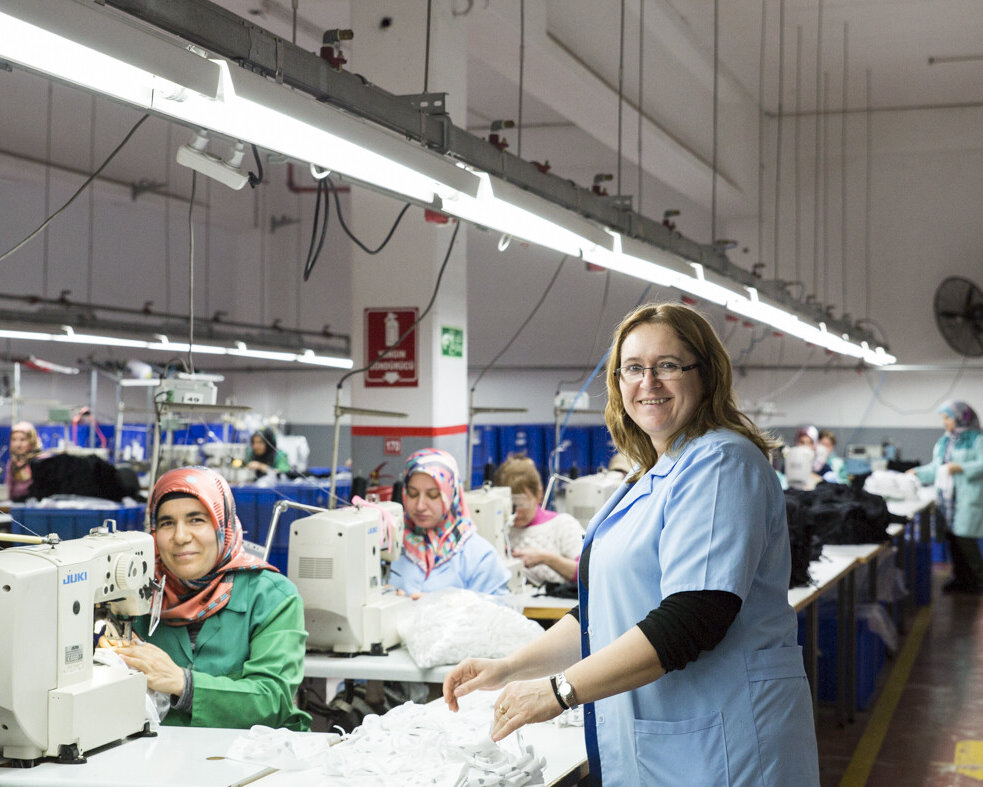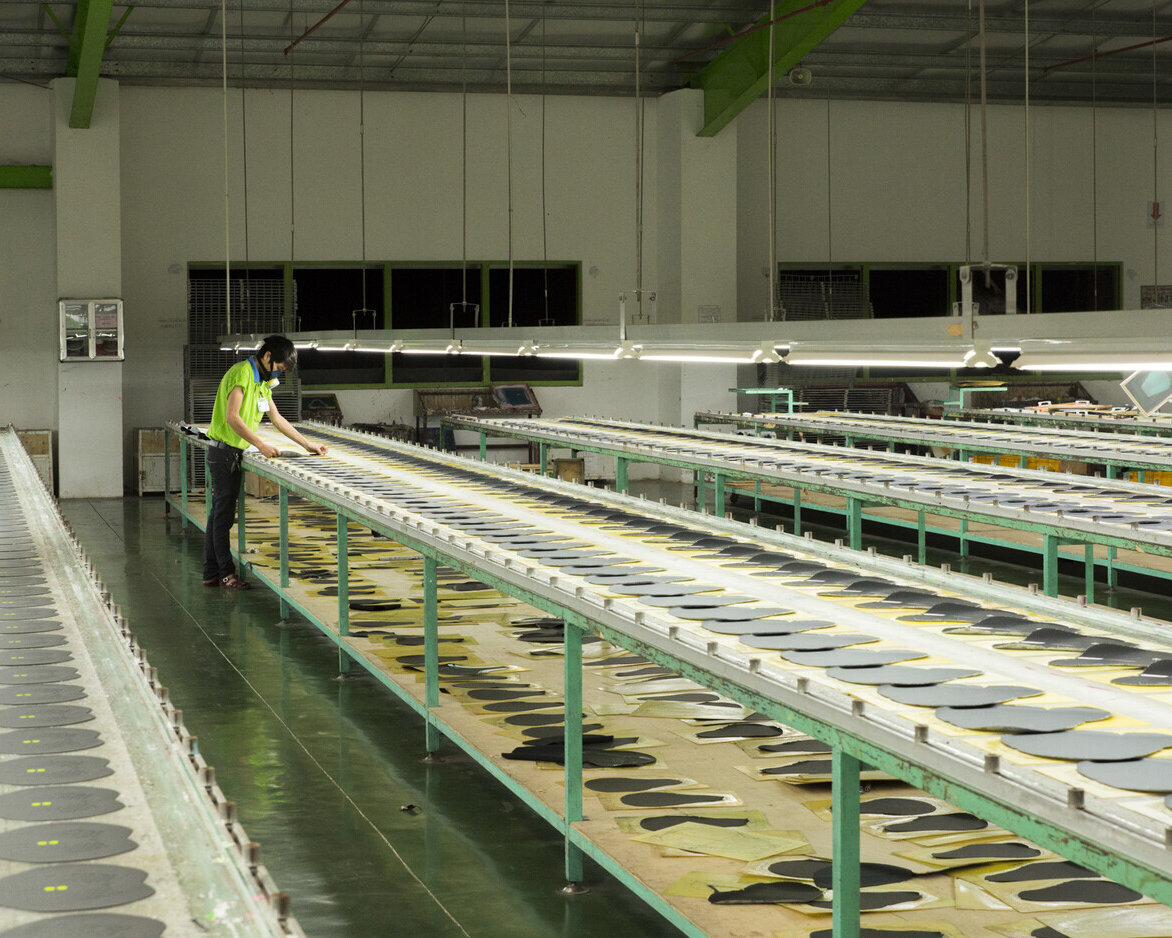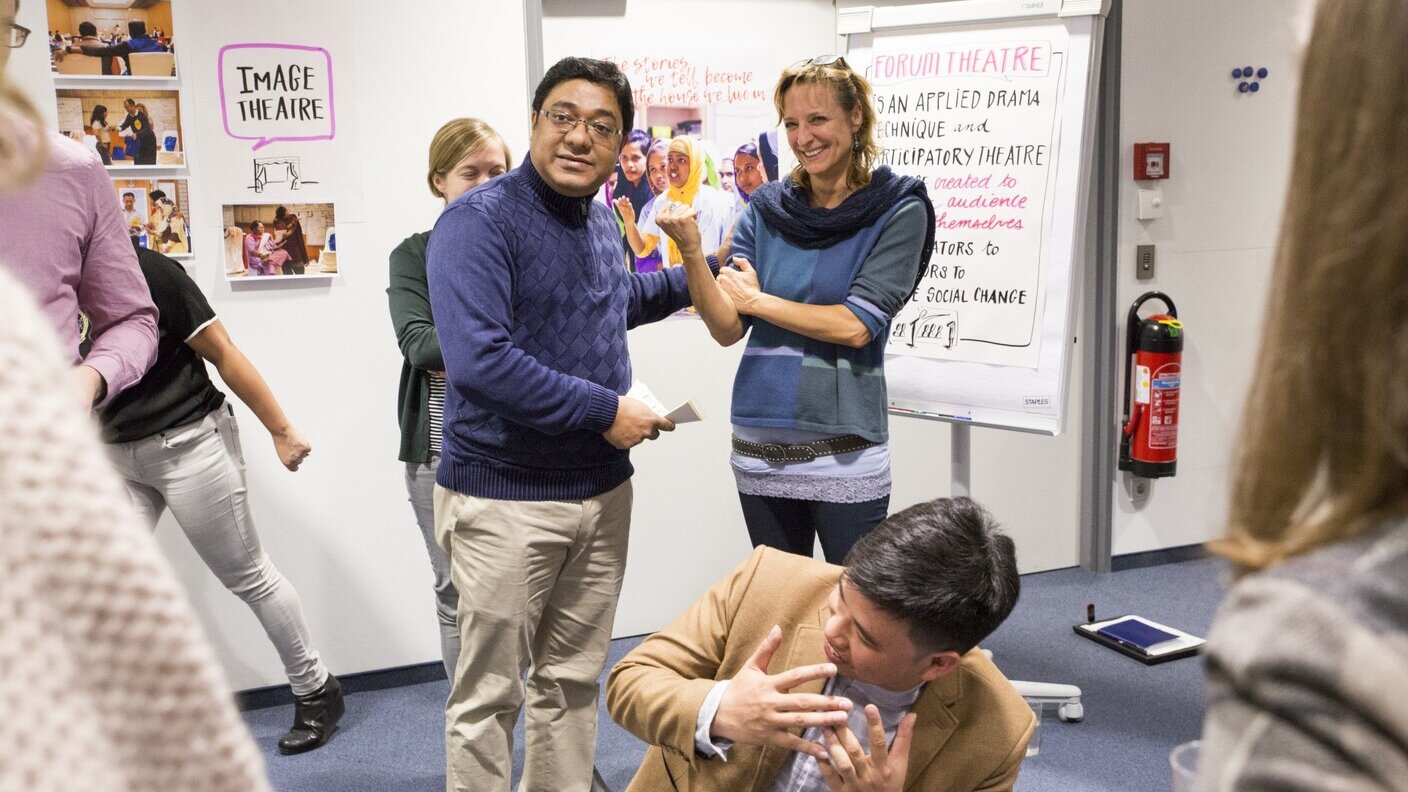Human rights
Risk management & auditing
With our monitoring and audit program, we select those factories that comply with our minimum standard of human and labor rights. This is how we proceed:
In the first step of our risk management, we assess the human rights situation in the countries where we have production facilities. For the analysis, we draw on recognized indicators from international organizations, research institutes and trade unions as well as our own experience. This results in country or region-specific guidelines for us (e.g. social and environmental audits, additional measures including procurement bans), as well as guidelines for certain production processes (e.g. for leather and denim production or homeworking).
In the second step, we check whether the manufacturers comply with our minimum standards for labor and human rights before starting business. These are set out in the Tchibo Supplier Code of Conduct (SCoC) and are based on internationally recognized declarations, conventions and principles (see policy statement). If the manufacturers comply with the necessary standards and any specific guidelines that may be required, we start working with them. If there are deficiencies, improvements must be implemented before we place an order for products.

Auditing as a starting point
We take a critical view of ensuring compliance with human and labor rights solely through social audits in factories: audits are not able to fully uncover the reality in factories, even if they are carried out with the utmost care. This is where the instrument reaches its limits. Audits are only a snapshot of the situation on site and generally only reveal the obvious deficiencies at the time of the audit. We therefore concentrate on criteria where audits give us a realistic insight into the factory situation: Occupational health and safety, personnel management systems and visible environmental pollution. If violations of the SCoC and risks for employees in the factories are identified here, we actively demand and support improvement measures by creating and following up on corrective action plans (CAPs). We publish how we deal with the results of social and environmental audits in our Human Rights Report (Non Food).
However, problems such as discrimination or violations of trade union rights tend to remain invisible in audits. Because we do not want to be lulled into a false sense of security, we do not ask about them in our audit formats, but deal with them in our WE program and in cooperation with trade unions.

A holistic approach is needed
We achieve fundamental and long-term improvements in human and labor rights not through audits, but through our WE dialogue program and our work with trade unions. These approaches are at the heart of our human rights work and go far beyond auditing. In this way, we counter weaknesses in the widespread audit approach, which only involves those who are directly affected by misconduct to a limited extent: the employees in the factories.
